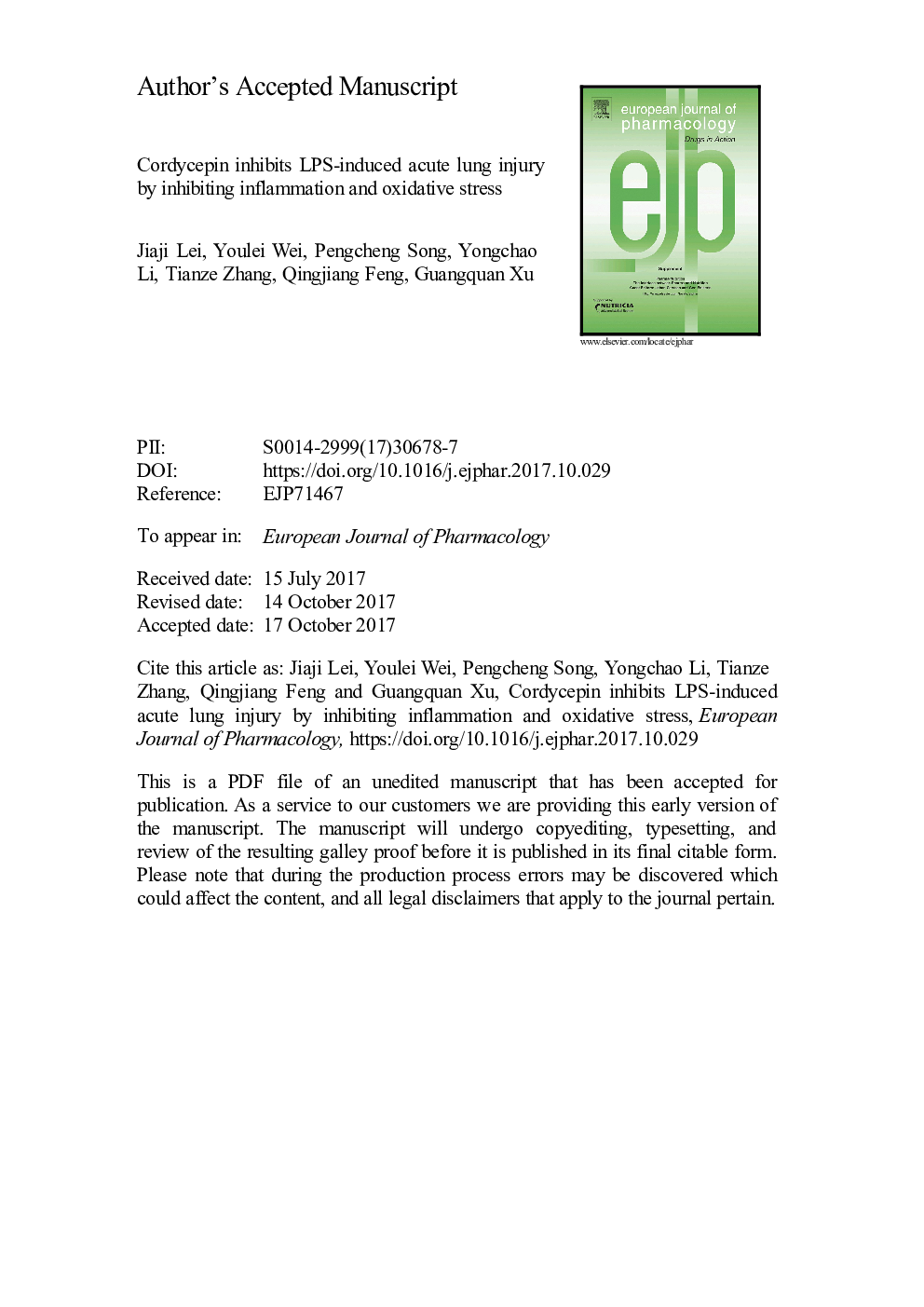| کد مقاله | کد نشریه | سال انتشار | مقاله انگلیسی | نسخه تمام متن |
|---|---|---|---|---|
| 8529860 | 1558862 | 2018 | 10 صفحه PDF | دانلود رایگان |
عنوان انگلیسی مقاله ISI
Cordycepin inhibits LPS-induced acute lung injury by inhibiting inflammation and oxidative stress
دانلود مقاله + سفارش ترجمه
دانلود مقاله ISI انگلیسی
رایگان برای ایرانیان
موضوعات مرتبط
علوم زیستی و بیوفناوری
علم عصب شناسی
علوم اعصاب سلولی و مولکولی
پیش نمایش صفحه اول مقاله

چکیده انگلیسی
Acute lung injury (ALI) is a common severe clinical syndrome in intensive care unit. Inflammation has been reported to play a critical role in the development of ALI. Cordycepin, an active component isolated from Cordyceps militaris, has been reported to have anti-inflammatory effects. However, the anti-inflammatory effects of cordycepin on LPS-induced ALI remain unclear. Therefore, in the present study, we assessed whether cordycepin could attenuate ALI induced by LPS. The mice were conditioned with cordycepin 1 h before intranasal instillation of LPS. Lung wet/dry (W/D) ratio, MPO activity, MDA content, and inflammatory cytokines production were detected. The expression of NF-κB p65, I-κB, Nrf2, and HO-1 were detected by western blot analysis. We found that LPS significantly increased lung wet/dry (W/D) ratio, MPO activity, MDA content, and inflammatory cytokines production. However, the increases were significantly inhibited by treatment of cordycepin. LPS-induced NF-κB activation was also suppressed by cordycepin. In addition, cordycepin was found to up-regulate the expression of Nrf2 and HO-1 in a dose-dependent manner. In conclusion, our results demonstrated that cordycepin could attenuate LPS-induced ALI effectively, probably due to inhibition of inflammation and oxidative stress.
ناشر
Database: Elsevier - ScienceDirect (ساینس دایرکت)
Journal: European Journal of Pharmacology - Volume 818, 5 January 2018, Pages 110-114
Journal: European Journal of Pharmacology - Volume 818, 5 January 2018, Pages 110-114
نویسندگان
Jiaji Lei, Youlei Wei, Pengcheng Song, Yongchao Li, Tianze Zhang, Qingjiang Feng, Guangquan Xu,